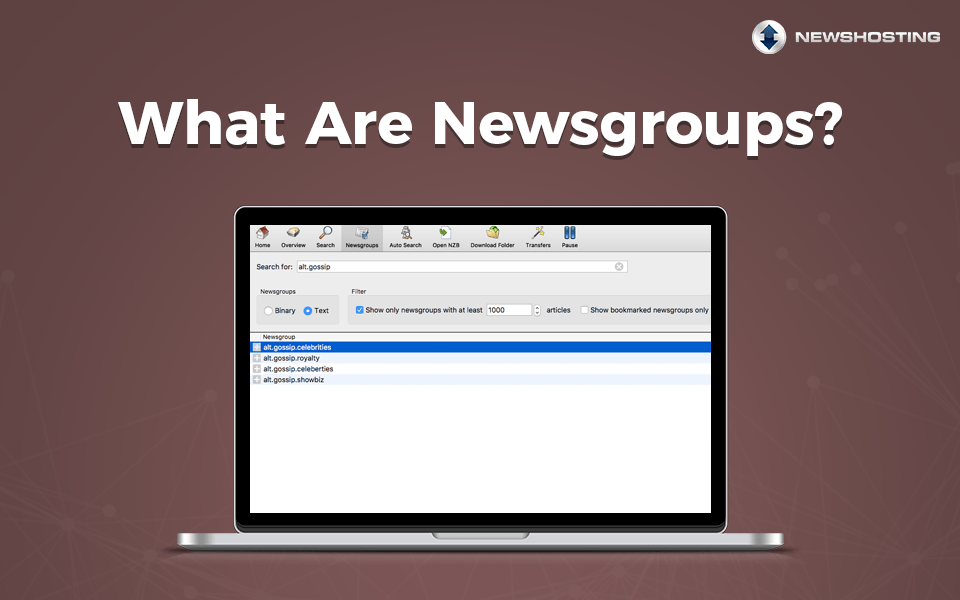Online ads can be intrusive, and even worse, many of them track your browsing habits without your consent. Fortunately, ad blockers offer an effective solution by removing these distractions and protecting your privacy. But with so many options available, what makes an ad blocker the best choice?
In this blog, we’ll explore the key factors that define the best ad blocker and how to choose the right one for your needs. At the end, we’ll introduce you to Newshosting’s ad blocker, which is integrated into our VPN, making it a powerful and reliable solution for all your online security needs.
What Makes a Good Ad Blocker?
When selecting the top ad blockers, consider the following features:
1. Effective Ad Blocking
The primary function of any ad blocker is to remove unwanted ads from websites. The best ad blockers go beyond just basic ad removal. They block video ads, pop-ups, banner ads, and other disruptive elements, ensuring a smooth browsing experience.
2. Privacy Protection
Ads are often linked to tracking software that follows you across the web. The top ad blocker apps prevent these trackers from collecting your data, safeguarding your online privacy.
3. User-Friendly Interface
Whether you’re tech-savvy or not, a good ad blocker should be easy to use. It should offer a simple setup process, customizable settings, and clear notifications, making ad blocking accessible to everyone.
4. Compatibility
The best ad blocker should work seamlessly with multiple browsers and devices, including desktops, laptops, smartphones, and tablets. Cross-platform compatibility ensures that your browsing remains ad-free no matter what device you’re using.
5. Resource Efficiency
While some ad blockers may slow down your device, the best ones are lightweight and don’t consume too many system resources. They should work in the background without impacting your device’s performance.
6. Additional Security Features
A top-tier ad blocker often comes with added security benefits, like malware protection and phishing prevention. These extra layers of defense help ensure that your online experience is not only ad-free but also safe from harmful threats.
How to Choose the Right Ad Blocker
Choosing the right ad blocker depends on your specific needs. Do you prioritize speed, privacy, or security? Here are a few tips to help you decide:
- – For a streamlined browsing experience: Choose an ad blocker that focuses on removing all forms of disruptive ads, including those in videos.
- – For maximum privacy: Opt for ad blockers that emphasize tracker blocking and data protection.
- – For all-in-one protection: Look for ad blockers integrated with other security tools, like malware and phishing defenses.
Ad Blocker Benefits: Why You Need One
Ad blockers not only remove distractions but also protect your data, improve page load times, and can even help prevent malware infections. The ad blocker benefits are numerous, making them an essential tool for safe and smooth Internet browsing.
Newshosting’s Ad Blocker: The Best Ad Blocker for Comprehensive Protection
When it comes to ad blocker reviews, Newshosting stands out. Our ad blocker is integrated into our VPN app, providing a seamless experience with added layers of security. Here’s why Newshosting’s ad blocker is the best:
- – Comprehensive Ad Blocking: From pop-ups to video ads, Newshosting’s ad blocker eliminates all disruptive ads, giving you a cleaner browsing experience.
- – Tracker Prevention: We stop ad trackers from following your online activity, enhancing your privacy.
- – Built-In Security Features: In addition to blocking ads, our VPN comes with advanced malware and phishing protection, so you’re protected on all fronts.
- – Cross-Platform Compatibility: Whether you’re on your desktop or smartphone, Newshosting’s ad blocker works flawlessly across all devices.
Choosing Newshosting’s ad blocker is more than just an ad-free experience. It’s about securing your privacy and protecting yourself from online threats. With our ad blocker, you get the best of both worlds: robust ad blocking and top-notch security features.






